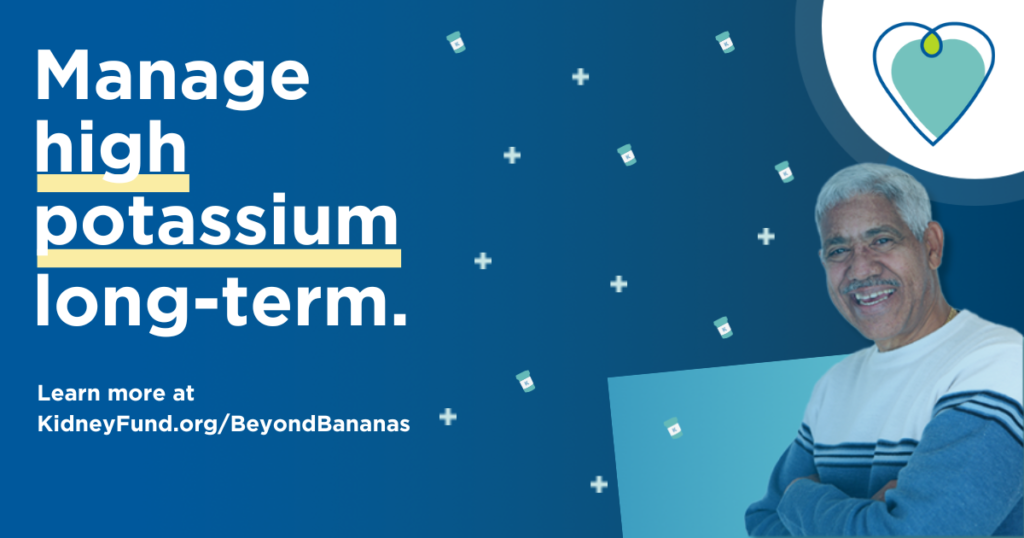Kidney and Heart Disease: How They Are Connected
Guest post provided by Michael Spigler, Vice President of Patient Support and Education, American Kidney Fund

When it comes to taking care of your health, think of heart disease and kidney disease as interconnected partners. If your kidneys don’t function properly, it can lead to issues like high blood pressure and inflammation, putting your heart at risk. Additionally, heart problems can negatively affect your kidneys by reducing blood flow to them.
Having chronic kidney disease (CKD) means that you’re more likely to get heart disease. The reverse is also true: heart disease can cause CKD. In fact, heart disease is the leading cause of death among people on dialysis, a life-saving treatment for people in kidney failure.
However, many people don’t know that the best way to prevent heart disease is to prevent or treat the problems that can cause it, such as diabetes, high blood pressure and anemia.
Consider these facts:
Your heart and kidneys rely on each other to function well. When you have kidney disease, your heart must pump harder to get blood to your kidneys, which can cause stress on your heart. This extra stress can eventually lead to heart disease. Additionally, if your kidneys are damaged, they can’t filter blood as well as they should, leaving extra fluid and waste in your blood, potentially damaging other organs – including your heart.
Heart disease, also known as cardiovascular disease, means your heart cannot pump blood through your body as well as it should. Heart disease includes heart or blood vessel problems such as coronary artery disease, blood clots, heart attacks or problems with your heart’s muscles, valves or heartbeat. Your heart makes up for these deficiencies by holding onto more salt and water, putting pressure on your veins. This extra pressure on your veins can ultimately damage your kidneys, leading to kidney disease.
Healthy kidneys help regulate blood pressure, create red blood cells and filter your blood. To produce red blood cells, which carry oxygen throughout your body, the kidneys make erythropoietin. When they are unable to produce erythropoietin, it can lead to anemia and heart problems.
Potassium plays a major role in kidney and heart health, as it controls muscle contractions, including those in the heart. Unbalanced potassium levels can lead to risk of heart disease or heart failure – the most fatal heart issues associated with kidney disease.
People with kidney disease, including those not yet on dialysis, can have issues with potassium. The loss of kidney function can result in the inability to filter potassium. When this happens, it causes extra potassium in the body, a condition known as hyperkalemia, or high potassium. Hyperkalemia often does not cause symptoms until heart health has already worsened and can lead to a heart attack if not diagnosed and treated.
Many patients discover they have high potassium due to a minor heart issue; it is recommended that this condition be treated continuously through medicines called potassium binders. The medicine works by sticking to the potassium in your body, which is then removed through feces. This prevents some of it from being taken into your blood and building up.
Additionally, you may not have symptoms of heart disease until your heart and blood vessels are badly damaged. Symptoms depend on the type of heart disease you have. Symptoms of heart disease can include:
- Chest pain
- Shortness of breath
- Feeling sick to your stomach
- Feeling weak and tired
- Pain, numbness, weakness or coldness in your legs or arms
- Pain in your neck, jaw, throat, upper belly area (abdomen) or back
- Swelling of your legs, ankles and feet
- Irregular heartbeats that feel fast, pounding or fluttering
- Feeling dizzy or lightheaded or fainting
It is important to tell your doctor if you feel symptoms because heart disease is easier to treat when it is caught early.
Prevention of both heart and kidney disease starts with preventing and managing the conditions that cause them. Keeping diabetes, high blood pressure and anemia under control can help prevent them from getting to the point of causing kidney or heart disease. You can also help prevent heart disease by making healthy life choices, including:
- Eating kidney-friendly foods that are low in salt and fats
- Taking your medicines exactly how your doctor told you to
- Being active most days of the week to help lower blood pressure and improve blood flow, such as walking, biking or swimming
- Quitting smoking if you smoke
- Lowering stress levels by learning ways to relax such as calm breathing, yoga or meditation
It’s crucial to take care of both your heart and kidneys because improving one can help the other, making you healthier overall.
For more information on the kidney-heart connection, especially potassium in the body, talk to your doctor and visit KidneyFund.org/BeyondBananas.



